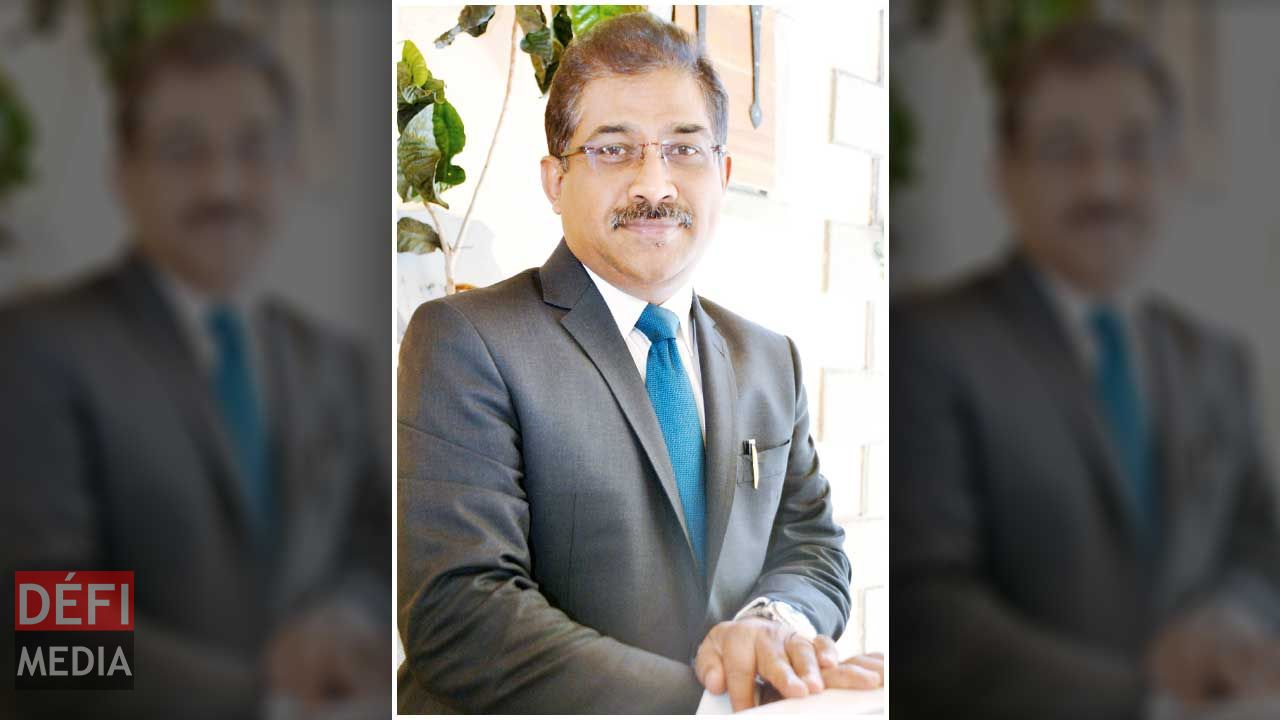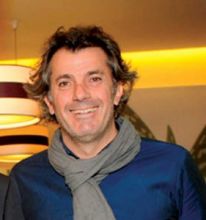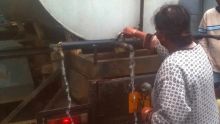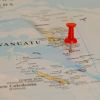
Sen Ramsamy, Managing Director of Tourism Business Intelligence, analyses for News on Sunday the Government’s Three-Year Strategic Plan for the tourism sector. He also makes a series of proposals and identifies the low level tourist receipts as the principal challenge to Mauritius tourism. He prefers fewer tourists who spend lots of money on the island than to have a large number of visitors spending peanuts. He regrets that the three-year plan for tourism makes a total abstraction on tourist safety and security, air access beyond the corridor, duty-free shopping on large scales, product differentiation, events management and so many other initiatives that would have put our youth to work in a productive and profitable manner. He recommends that we define a new vision for tourism for the next 25 years, but with carefully worked out strategic plans for the short, medium and long term. He hopes that in the next three years, Mauritius would be able to trace out a new destiny for its tourism industry based on innovation.
Publicité
Strategic Direction
Broadening the tourist base - Open Skies agreements will be negotiated to increase flight routes and tap into the rising middle-income group in Asia.
“We have entered the Asian market by the wrong door”
Sen Ramsamy’s comments:
I really fail to understand this logic of Government. It clearly says that its goal is to promote Mauritius as a TOP CLASS tourist destination, but when it comes to its strategies to achieve this same goal, it wants to tap the middle income group in Asia. Which is which? Not at all surprising to me that when we look at the profile of tourists coming from Asia, we realise that we have perhaps entered that market by the wrong door. The spending pattern of those Asian visitors is not very encouraging compared to the efforts being put in generally. And yet we pretend to be a top class destination. Understandably, the expectations of Asian tourists are also not being satisfied due to some severe shortcomings in our product offers – language, cuisines, shopping limitations, standard of services, security, etc. Our product has been euro-centric and we want this to satisfy the tastes of all visitors, despite the differences in culture, lifestyle and expectations. It’s similar to the one size fits all. It will not work in the long run, therefore is not very sustainable in business approach and strategies.
Diversifying the tourism product - The range of tourism activities will be expanded to include: Adventure sports such as bike trails and marked hiking trails; Cruise tourism; Cultural tourism and cultural themed discovery tours, with rehabilitation or construction of museums, galleries and historical monuments; Events such as International Chef Competition and Rugby-10 Tournament, especially during low tourist season; Medical tourism; and Yacht tourism through the creation of marinas.
“Not much will be achieved from this plan”
Sen Ramsamy’s comments:
We cannot even professionally manage the only two main museums existing on the island over decades, and now we want to build more museums and historical monuments. Even if we do, these do not prompt higher tourist spending. The solution is clearly elsewhere and no one wants to realise it. The above measures have been announced year in year out, but unfortunately not much has materialised. I note that the large aquarium announced since last year no more appears in the plan. There are several growth paths that could lead us to more handsome harvest in tourism, esp. in terms of foreign exchange earnings, employment, investment, multipliers and value addition. I am sure that by 2020, not much will be achieved from this plan.
Adopting Eco-friendly infrastructure: The tourism sector will mainstream eco-friendly practices such as the adoption of energy-saving technology, renewable energy and rain-water harvesting.
“We need vision, audacity and swift actions to regain our leadership position”
Sen Ramsamy’s comments:
We have walked the talk since long back when hotels in Mauritius had adopted the Environment Charter. This Charter obtained the world award for sustainability in 2003 from Energy Globe under the auspices of the United Nations and the European Union. Nobody seems aware of this bold move in favour of tourism and the environment. There is absolutely no need to reinvent the wheel. The works had been done and need only some polishing after so many years. I however regret that the three-year plan for tourism makes a total abstraction on tourist safety and security, air access beyond the corridor, duty-free shopping on large scales, product differentiation, events management and so many other initiatives that would have put our youth to work in a productive and profitable manner.
Mauritius can still make up for the many missed opportunities in tourism. It depends on the vision and the leadership in this industry. Now, whether we have a vision or not, is another question. But foremost, we need to have tourism professionals, especially from the young generation, to propel this industry to new heights. Unfortunately, this is not the case at present and I fear that we may be going from bad to worse. In spite of perceptions, tourism is highly technical. Given its importance to our economy whilst other sectors remain sluggish, our tourism sector cannot be a mere business as usual, and worst still, we cannot afford to transform this dynamic sector into a family business. We need vision, audacity and swift actions to regain our leadership position in tourism in this part of the world. The ground reality cannot continue to defy stated policies and strategies. In fact, since independence, our former leaders had successfully traced out a sound vision for this industry and which we are still stretching beyond its capacity as tourism development model in 2017. It is but time to define a new vision for tourism for the next 25 years, but with carefully worked out strategic plans for the short, medium and long term. The present three-year plan is mere old wine in a, not new, but a recycled bottle. We are diversifying our market base from the Europe to China, India, Africa, and Middle East but our product has remained singularly euro-centric. There is a mismatch between our tourism supply and new demand from world travellers. Tourism in Mauritius needs innovation. Visitors from across the world are very demanding as a result of information technology and social media. We must be able to anticipate demand, understand the sources and pattern of tourism growth, know who will be the future world travellers, where will they prefer travel to and why, what will be their expectations and how prepared are we to face the global shift in balance of power and the new economic and geopolitical order. Moreover, our level of preparedness to face challenges of greater magnitude, based on what we see happening elsewhere, is extremely low. This is an area of grave concern to us and nobody seems to pay any attention to this state of affair.
On the regional level, Mauritius was always at the forefront to pioneer the concept of Vanilla islands on the world stage. But over the past years, the role of Mauritius has been reduced to a mere spectator on regional tourism and this has proved simply lamentable for Mauritius on the Vanilla Islands front, leaving the Seychelles and Reunion Island in the lead role. It still remains a great concept with an attractive brand name, but it has altogether become a non-starter and therefore another missed opportunity for Mauritius. Let us hope that in the next three years, Mauritius would be able to trace out a new destiny for its tourism industry based on innovation, so our children can have a more solid foundation that would give a new vitality to our national economy.
Promoting local products and handicrafts Linkages between small enterprises in the handicraft sector and the tourism sector will be reinforced to provide an outlet for local artisans to sell their products and to promote authentic Mauritian products.
“The idea of promoting local handicrafts is excellent”
Sen Ramsamy’s comments:
The idea of promoting local handicrafts is excellent. But the initiative announced in the Budget for a refund of Rs 200 for every Rs 1,000 purchase of local handicraft products will benefit neither the artisan nor the tourists. I consider this as a rather naïve move as it has only wet the appetite of the retailers who have already increased their price by Rs 300. This is exactly what I always term as being right in the wrong way.
Upholding quality of services: Front-liners will be equipped with the right skills and attitude to be the brand ambassadors of Mauritius.
“A brilliant idea to introduce ‘Travel and Tourism’”
Sen Ramsamy’s comments:
The quality of tourism training and the state of the Hotel School of Mauritius are causes of anxiety for many. Instead on improving existing facilities and standards, Government has decided to open a tourism polytechnic at Montagne Blanche. This is a sheer missed opportunity, as we could have done something really fabulous for this sector with the same money. Moreover, someone had a brilliant idea to introduce ‘Travel and Tourism’ as a subject at secondary school level and this was even announced in the 2017/18 Budget. In 1991, I had personally chaired a high level committee at the MES to work out the curriculum in view of introducing this same course at secondary level. I am particularly proud and pleased to announce that the course had already started since ages in all our schools and students have been doing fairly well in this subject at both SC and HSC examination levels. According to MES reports, last year the pass rate in Travel and Tourism at SC and HSC were 70% and 69% respectively.
Enhancing quality assurance of service delivery: A quality label, similar to the Hotel Classification System, will be developed for non-hotel accommodations. In addition, all tour operators will be regulated to ensure high service standard and customer safety.
“The issue with taxi drivers could represent a time bomb”
Sen Ramsamy’s comments:
Discussions for the introduction of a Hotel Classification system in Mauritius started in the mid 1980s and it never materialised. When I took over as Director of the Tourism Authority, although for only four months, I decided that we have had enough of talk shows on this project. I took the bull by the horns and I succeeded to rate our hotels as per international norms. I introduced a proper hotel classification system and most of our hotels have been duly classified in January 2016. I hope that the path is now sufficiently cleared for replicating a similar system for the non-hotel sector, restaurants, etc. As regards tour operators, I will advise caution as the issue with taxi drivers could represent a time bomb that could blow in the face of the industry if unchecked. The problem is really serious but the solution proposed by Government is completely off-track.
The visibility of Mauritius as a top-class tourist destination in traditional, emerging and new markets will be enhanced. The target is to achieve an annual average increase in tourist arrivals of at least 5% along with an annual increase of 7% in tourism earnings.
“Mauritius is lagging seriously behind”
Sen Ramsamy’s comments:
The objective is fairly laudable but the strategies and action plan to make it happen often defeat the goal. The principal challenge to Mauritius tourism remains the low level tourist receipts. The local belief that tourism is doing very well, is quite misleading when we analyze the industry performance in relation market trends and in comparison to our competitors. I keep repeating that it is better to have fewer tourists who spend lots of money on the island than to have a large number of visitors spending peanuts. According to the Bank of Mauritius, tourist earnings were estimated at Rs 55.9 billion last year. Statistics Mauritius has forecast only 3.6% increase in tourist receipts for 2017 whereas the target of the Ministry of Tourism is set at 7%. Even if we manage to stimulate tourist expenses to a high of Rs 58 million in 2017, this will represent an average of only US$ 119 per tourist per day and it includes spending on tourist accommodation, food and beverages, airport transfers, excursions, shopping etc. This figure is by far lower than that of Seychelles, Maldives and even Sri Lanka. It is clear that Mauritius is lagging seriously behind in terms of real tourism benefits accruing to our national economy. If we manage to develop and enhance our tourism offer in line with new trends, and if we use the same average tourist expenditure as in the Maldives, Mauritius should reap more than Rs 100 billion of tourism earnings last year, let alone job prospects for our youth.

Notre service WhatsApp. Vous êtes témoins d`un événement d`actualité ou d`une scène insolite? Envoyez-nous vos photos ou vidéos sur le 5 259 82 00 !






















![[Info Soirée] : Un adolescent de 15 ans meurt dans un accident de la route](https://defimedia.info/sites/default/files/styles/square_thumbnail/public/thumbnail_211224.jpg?itok=n3kSqx_U)